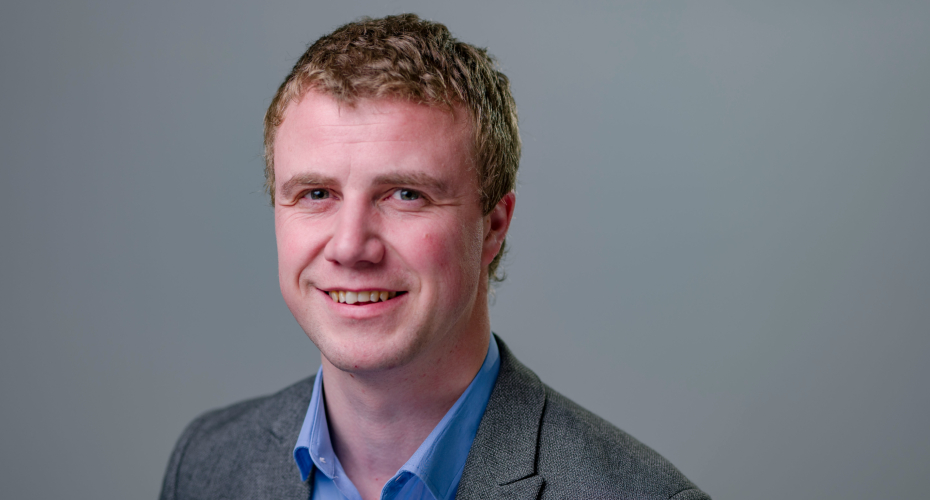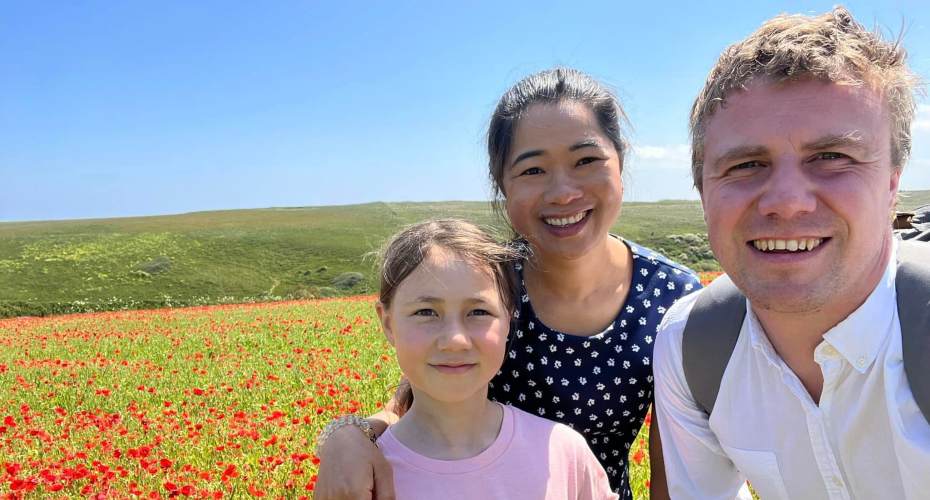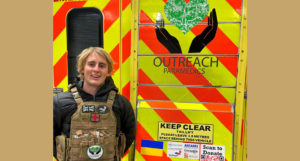Penryn Perspectives: Mark Plummer

“When I think of how different I am to when I started at the University, how much more confident I am as a person and willing to take things on, I feel incredibly fortunate to have been a part of that atmosphere of thought and learning.”
Mark Plummer
Mark Plummer is Departmental Manager for HaSS Cornwall, Penryn’s 700-strong community of humanities, arts and social sciences staff and students. In his role, Mark has oversight of the operational running of the department, helping to deliver its strategy in conjunction with professional services staff across the institution. Prior to this, Mark worked for the Environment and Sustainability Institute in administrative roles, while he was also studying for an English degree at the Open University.
In this, our fourth Penryn Perspective, Mark talks about how the University transformed his life, his outlook on Cornwall and the prospects of young people.
“I grew up in a small village called Reawla, close to Hayle. My dad’s family were from St Ives, while my mum’s hailed from Camborne, and I have lived all my life in and around that area. I went to school in Hayle and then to Cornwall College, Camborne for my A levels, and that was 20 years ago, when the Penryn campus was just opening.
“Even at that time it was quite unusual for people in the area to go on to higher education. We were a working-class family with generations of fishermen on my dad’s side, and very few of my friends went off to university. So, looking back it was no surprise that I chose to go straight into work after college, working small jobs in and around St Ives, in the beach cafes and takeaways, bars and hotels.
“I did feel a tinge of regret, however, and there came a point where I decided to enrol on an Open University degree. I’d left home by then and needed to work to pay my way, so full-time study was not an option. And it was around that time that the Environment and Sustainability Institute opened and advertised for a receptionist. I thought to myself ‘Well, I didn’t study there, but maybe this is a way of to be a part of the university?!’. It seemed like a great opportunity and in February 2013, I arrived on the campus.
“It felt a world away from the minimum wage jobs I was used to. And because the ESI was new, I felt like I was learning alongside it, as we figured out our roles within the institution. I got to meet so many fascinating people and there was an added layer of excitement for me because this was happening in Cornwall. I had had no idea of the scale and importance of the research that was happening here.
“As I said, I was a receptionist, but while on paper that might imply answering the phone and greeting people, the attitude of the University was very different. It was ‘what are you interested in?’ and ‘what would you like to be involved with?’ Over the next 3-4 years, the role grew, and I was handed opportunities to learn new things. I’m not sure many other organisations would have shown the same level of trust and afforded such responsibility to someone in my position. I was also given a huge amount of support to finish my degree.
“This all enabled me to apply for the role of Senior Administrator when it was created by the ESI, and around the same time, I also became the University’s Speak Out Guardian for Penryn, which I did for nearly four years. Through that, I felt I was able to give something back to the community which had helped me to progress, and that was fantastic.
“In September 2022, I moved into my current role., and what I love about it is its breadth. It covers so many different aspects and requires me to interact with different people and areas of the University and wider community. There is always something new to learn, and that is a great feeling, that sense that you’re always developing. And one of the highlights has been my leading of the St Piran’s event on campus, celebrating Cornish culture, heritage and identity. It draws in other organisations, such as Cornwall Council or the Chamber of Commerce, groups like Black Voices Cornwall, or environmental charities. It’s rewarding to be able to celebrate the place where I am from, and to see how Cornwall unites this campus. It has a way of drawing people together.
“I’ve also had the chance to be involved with some of the outreach and widening participation work that the University undertakes in Cornwall’s schools. Twenty years isn’t that long a timescale but the shift in attitudes, from when I was a teenager to now, is remarkable. My daughter, at the age of 11, sees university as a natural progression for when she finishes school, and that is brilliant. I am very proud to have been a part of that.”




